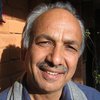
Few weeks ago, during a social event, Nilambar Acharya vociferously supported the move to have Chief Justice Khil Raj Regmi appointed as the Electoral Prime Minister. He was dismissive of the argument about such a move violating the principle of separation of powers. ‘At a time, when the sovereignty does not lie in the country, such an argument will lead us not know-where’, was his counter-argument. The host of the event was a retired Chief of the Nepal Army.
Weeks later, Regmi having been in the saddle for nearly two months now as wished by Acharya and the likes of him including the top leaders of the four ‘major political parties’, made similar comments when a delegation of the Nepal Medical Association called on him recently. To their appeal that he should resign as the Chief Justice in deference to the principle of the separation of powers, Regmi asked ‘does the power really lie in the country’? Let us examine these two dangerous admissions—something that confirms Baburam Bhattarai’s infamous statement that the key (to run the country) lies somewhere else—coming from two people who were in their position (Acharya as head of the Constitutional Committee and Regmi as CJ) under a constitution that says sovereignty lies with the Nepali people.
We need to debate this point seriously and see if sovereignty and Democracy have any direct relation in Nepal’s context. In the past six years, especially after 2006, almost all the parties and their leaders including the Maoists claim to be campaigning for a ‘democracy’ that will remain forever. But the period—judging by these leaders version—has seen erosion, if not disappearance of sovereignty, an assumed source of democracy. If that is the case, it is time that the accountability for this disappearance should be fixed. The question then arises; can we have democracy without people's sovereignty?
American Constitution’s may not be as bulky or big as the interim constitution here, or like voluminous ‘constitution’ that donors and their Nepali friends have brought about recently as a model of the Nepali constitution they envisaged, but it has a very strong core message that gives a sense of belonging to its people. ‘We The People’ –is at the core of everything that makes a nation and the constitution in American concept right from the time its constitution was formed. But we are practicing a system—all in the name of democracy—that denies any role to the people. Our Abraham Lincoln in our present day context will define democracy ‘By the Leader, of the leader and for the leader’. And such leaders never felt the need to be accountable to the people. We have seen and experienced this in our country during the past six years.
Exit of the Monarchy in 2008 May gave birth to a dangerous euphoria—a sort of cacophony—in favor of democracy in Nepal. It was clearly an agenda first mooted by India as back as in September 2005 (wiki Leaks September 12, 2005) , then transferred to ‘Nepalese actors’ through 12-point agreement two months later, and implemented in May 2008 unconstitutionally as the bill in the constituent assembly was piloted by an unconstitutional government led by G P Koirala. Why was the issue not taken to the people? Clearly, our actors took the order from the author of the move. They turned towards larger international community for the endorsement of an illegal act. They did not care much about what ‘we the people’ in Nepal would have wanted on this issue. That role that the leaders of the ‘bigger parties’ snatched from the people has not yet been restored to them. Gradually, it has moved to Shital Niwas and Baluatar with no accountability, responsibility or loyalty to the Nepali people, the source of Nepali sovereignty.
B P Koirala therefore, advocated for a fine balance between Nepal’s independence, sovereignty and democracy. He envisaged that Nepal will remain an independent country only so long as the Monarchy as Constitutional Head of the state and Pro-democracy forces worked together with a conciliatory approach. Nepali Congress post 2006 rejected that theory that B P had all along advocated. No nationalism, no sovereignty, no independence, but only democracy seems to be the new slogan that the Nepali Congress has come to own. That is where the fallacy lies. Nationalism, independence and sovereignty are interlinked with Democracy. In all these people have the right to decide freely, independently and without any outside interference?

Yubaraj Ghimire
Ghimire is a Kathmandu based journalist.
- Manmohan Singh And The Churn In Nepal
- Jan 08, 2025
- Why ‘Revolutionary’ Communist PM Prachanda Went To Temples In India
- Jun 08, 2023
- Why China Is Happy With Nepal’s New PM
- Jan 03, 2023
- Prachanda Sworn In As PM: New Tie-ups In Nepal, Concern In India
- Dec 27, 2022
- Young TV Anchor As Its Face, RSP Rise Takes Nepal By Surprise
- Nov 23, 2022














